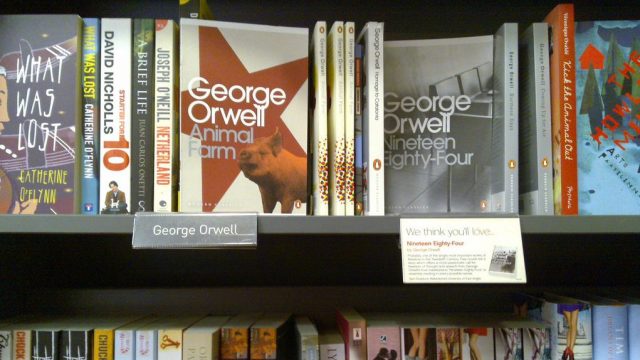Our Increasingly Orwellian Society

America is a fractured place these days, but the problem isn’t just ideology. Democratic societies have been divided along philosophical lines for about as long as there’s been democracy.
So it goes.
What’s troubling is our growing disdain for those who disagree with us and the bizarre ways in which that is manifesting itself.
For instance, take this New York Times piece by Farhad Manjoo. It’s about how the Silicon Valley-based tech industry was uncomfortable with seeing one of their own, PayPal founder Peter Thiel, on the stage at a Republican convention endorsing Donald Trump.
What Manjoo wrote, apparently without irony, about the open minds of these Silicon Valley types is revealing:
Though Silicon Valley has well-known problems with diversity in its work force, people here pride themselves on a kind of militant open-mindedness. It is the kind of place that will severely punish any deviations from accepted schools of thought — see how Brendan Eich, the former chief executive of Mozilla, was run out of his job after it became public that he had donated to a campaign opposed to gay marriage.
Right. Because nothing says “open minded” like conformity enforced by severe punishment.
Maybe tomorrow we can all prove how generous we are by defrauding charities.
Meanwhile, in academia, an industry supposedly dedicated to unfettered inquiry and challenging notions, racial segregation has become the cool new way to protect people from getting hurt feelings caused by statements they might not agree with:
The University of Wisconsin-Madison Multicultural Student Center held separate meetings based on race to discuss issues regarding race, including the deaths of Philando Castile and Alton Sterling. The center held two meetings for white students and staff and two for students and staff of color.
This isn’t an isolated incident. There has been a trend on campus toward giving minority students “safe spaces” free of white people.
Because that’s what race relations in America needs, right? A generation of citizens who think they need to be protected from people with different ideas and different skin tones and different cultural histories.
“[W]e have now sunk to a depth at which the restatement of the obvious is the first duty of intelligent men,” Orwell wrote in 1939.
We may well have sunk to that depth again. We’re certainly in a dark place as a country if open mindedness means enforcing a particular point of view, and if the path to racial comity leads to racial segregation.




